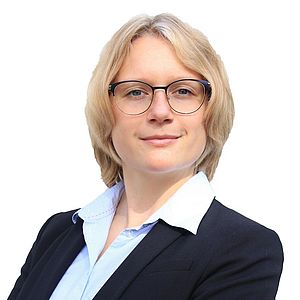Economics - Master
Key data on study program
Faculty
Economics and Social Sciences Faculty
Academic Degree
Master
Restricted admission
None
Regular duration of studies
4 semester
Is a combination subject required?
No
Application deadline
for
Germans and EU citizens
Winter semester:
15.09
Application deadline
for
non-EU citizens
Winter semester:
15.07
Valid for all applicants with German or EU university entrance qualification.
Program start
Winter semester
Language of instruction
English
Costs
Tuition and other fees
Requirements and application
Admission is subject to a selection procedure based on your written application documents. Admission letters will be sent out continuously during the application period (rolling admission)
For participation in the Double Degree Program with University of Nottingham, the schedule is as follows:
- Application deadline: May 15.
- Interviews with shortlisted applicants are scheduled for early June.
- Letters of admission will be sent out by late June.
Our programs start at the beginning of October and at the beginning of September within the Double Degree with Nottingham.
Find more information on the admission process on our website.
We publish all news concerning the application process on our website so you can stay in the loop.
Admission to the M.Sc. in Economics requires a Bachelor’s degree in economics, business studies or a related field with excellent grades. Applicants are expected to have sound intermediate level knowledge of microeconomics, macroeconomics and quantitative methods.
The program is free of tuition fees for all EU residents. The state of Baden-Württemberg has introduced fees for international non-EU students and second-degree students. For background information and for fee exemption options, please refer to this link.
For further information see the general requirements and specific requirements.
The entire program is taught in English. Applicants should therefore be fluent in English. Knowledge of German is not required to complete this program. However, German classes are available for international students.
For more information check the webpage of our School.
Please note! For participating in the Double Degree with the University of Nottingham, an IELTS of 6.5 is required. English Language Equivalencies of the University of Nottingham are listed here.
Program details
The M.Sc. Economics builds upon the expertise and reputation of our faculty in various fields of economics. It offers a lot of flexibility and is the most versatile program in economics that we offer. If you want a program that allows you to choose courses from the areas of economics that you find most interesting, this is the program for you.
Experts in economics become ever more important for societies to master key challenges of the future, such as achieving sustainable growth and avoiding unacceptable levels of economic inequality or unemployment. A broad range of field courses and electives gives you all the necessary flexibility to develop your individual academic profile in order to become such an expert.
Graduating from this program, you will be able to understand the driving forces behind major economic trends and what these mean for firms, workers, and governments. You will acquire the skills to analyze economic data professionally and understand the logic of economic problems.2
For more information check the webpage of our School.
Double Degree Option
This program can be completed as a double degree with the University of Nottingham (England). Please find more information on our website: M.Sc. Economics with Nottingham
Double Degree Option
This Master program can be completed as a double degree with the University of Nottingham (England). This means that in the double degree option a stay abroad during the first year (two semesters) is a fixed part of the curriculum.
Optional time abroad
You may choose to spend some time abroad as part of any study program. You should start planning it 12 to 18 months before your departure.
Here you will find general information and advice on studying abroad. In addition, some departments have their own subject-specific services providing information on studying abroad.
The Module Handbook describes the goals and structure of a degree program. In the module handbook, you will find details of the type of modules offered and their respective workloads as well as te classes, requirements and assessment. An ideal course plan is set out in the module handbook to help you plan your studies. The module handbook and the exam regulations help you to understand the framework and conditions of your program, and enable you to choose the right modules/ classes.
The exam regulations contain the legally binding regulations for a degree program. They set out, for instance, which modules must be taken and which assessment must be completed in order to successfully complete the degree program. The exam regulations also regulate how often exams may be repeated, which deadlines apply to assessment, and how the final grade is calculated. The exam regulations and the module handbook help you to understand the framework and conditions of your program, and enable you to choose the right modules/ classes.
Help with choosing a study program
Help with your decision to study in Tübingen:
To help you decide whether Tübingen is right for you, here are some contact points and information on studying in Germany:
University of Tübingen
- University of Tübingen’s international profile
- Contact: University office for the Advising and Admission of International Students
- Information on application for international students
- FAQs for international students
- Addresses and contact points for international students at the University of Tübingen
General information

The M.Sc. Economics offers a very international and inspiring study environment.
Sandra Kohler, B.Sc.
After your studies
Graduates of the M.Sc. in Economics are well-equipped to either pursue an academic career or an ambitious professional career. We offer a Master’s degree that enjoys an outstanding international reputation and gives you a competitive edge on the job market. You will acquire up-to-date scientific knowledge that is in high demand for a broad range of professional careers. Graduates may aim for a doctoral degree (Ph.D.) or careers in business and finance as well as administrative positions in the public sector and international institutions. Moreover, career paths in economics and finance also include policy advising, publishing, consulting and research.
Advice and internships
The University’s Career Service assists with careers orientation and getting started in your profession. Jobs and internships can be found in the Praxisportal.

